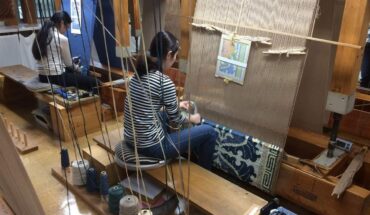New Delhi: Start-ups are immediately identifiable with IT or tech companies – ed-tech, health-tech, fin-tech or some such linked to the corporate world. But have you heard of a start up that has helped farmers with latest technology for food processing? Or for that matter, promises to ease the storage for fodder and farm produce? So, how about a start up that has created a range of new building material out of cow dung that resemble properties of traditional materials such as wood, concrete, wool, and plastic.’
Ding’ is the name of the product by start up named Studio Carbon of young entrepreneur Itika Gupta from Ahmedabad, which can be used in many ways to enhance everyday living.”The Dungse range has very less carbon footprint, can be manufactured using traditional industry processes and is much lower in cost and completely sustainable and circular,” says Gupta, of the product which earned her an award in 2019 (given in 2020) at the Department of Animal Husbandry’s ‘Start-up Grand Challenge 2019’ in the category of ‘Value Added Products’.
After being awarded, she took help of incubation and mentorship offered by the Department, to ahead for full-scale commercial production. Similar is the case of Madhav Kshatriya from Hyderabad. He was one of the winners from the 2019 challenge in the category of animal nutrition.
His ‘Cornext’ is credited with introduction of disruptive technology called ‘Baled Silage’ (natural preservation and fortification of green fodder) in India to address the fodder shortage prevalent in many parts of the country.In tune with the changing times, scores of young entrepreneurs are turning towards agriculture and making it a successful enterprise by either value adding to the produce or coming up with solutions that can ease the burden on the small farmer.
For a largely agrarian country such as India – with 86 per cent farmers being small land holding farmers, it has been imperative to depend on side incomes from livestock.
For various reasons over the last few decades, including erratic climatic conditions that has made farming increasingly unviable for small farmers, the practice had gone down but now, seems to have returned to a combination of farming and livestock rearing. For their ease, for creating more opportunities for these farmers, the Department of Animal Husbandry and Dairying, in partnership with Start Up India has recently launched the second edition of the Animal Husbandry Start Up Grand Challenge – to scout for innovative and commercially viable solutions to address six problems faced by the animal husbandry and dairy sector. It clearly takes inspiration from the overwhelming response received to the first edition of the challenge launched in September 2019 but this year, it has gone a step ahead.
The first time this competition was held in 2019, it had received 157 applications, the least 13 in ‘Value Added Products’ category and the maximum 44 in ‘E-commerce Solutions’ category of the total six. A three-stage evaluation process determined the results. Of these, 42 were shortlisted for final presentation in front of the experts (held virtually) in 2020.”We found many start ups doing good work among the farmers and we wanted to take their work to a larger audience. Also, there are some specific problems for which we have been looking for home-grown solutions,” Additional Secretary, Cattle and Dairy Division Varsha Joshi said.’Home-grown solutions’ are important as there is lot of costly solution technology available in the market for those who can afford. Unlike the first round, this year’s problem statements and expectations from solution are better articulated as the Department gained insights from the first round of start-up challenge and also sought feedback from the ground.
For instance, development of ‘Pregnancy Diagnosis Kits’ for dairy animals or, ‘Development of low-cost cooling and milk preservation system and data logger’. Low-cost cooling is necessary, especially in the remote areas or hilly areas where the farmer, in absence of a cold chain, faces difficulty in reaching the milk collection centre leading to deterioration of milk quality.But coming up with products and/or their services is one thing, but themes that are dealing with animals/livestock’s health are serious ones.
For instance, one of the problem statements is ‘Cost-effective, long-term, and user-friendly alternatives for storage and supply of semen doses’.The 2019 edition received 152 entries, of which 12 were selected for awards. This time round they are expecting more. Once the deadline, extended to mid-January from December 31 is over, the start ups would need to make a presentation in front of a panel of experts that will select the winners.”
The 12 awardees would get incubation for up to three months, mentor matchmaking, lab facility and even testing facilities, conducting business and investor workshops, and tracking the activities of the start-ups for up to 9 months after the completion of programme,” the official from Start Up India said.There would be virtual masterclasses too. The Ministry is offering support too.
“We intend to have a showcasing mechanism going forward. Meanwhile, all the start ups of the first round have been steadily growing and reaching the farmers,” Joshi added. There would be a ‘Demo Day – virtual in view of the restrictions now – where the start ups would get opportunities to pitch in front of an audience constituting officials from ministries, other government departments, cooperatives, corporate bodies, and investors, etc. AGENCIES





